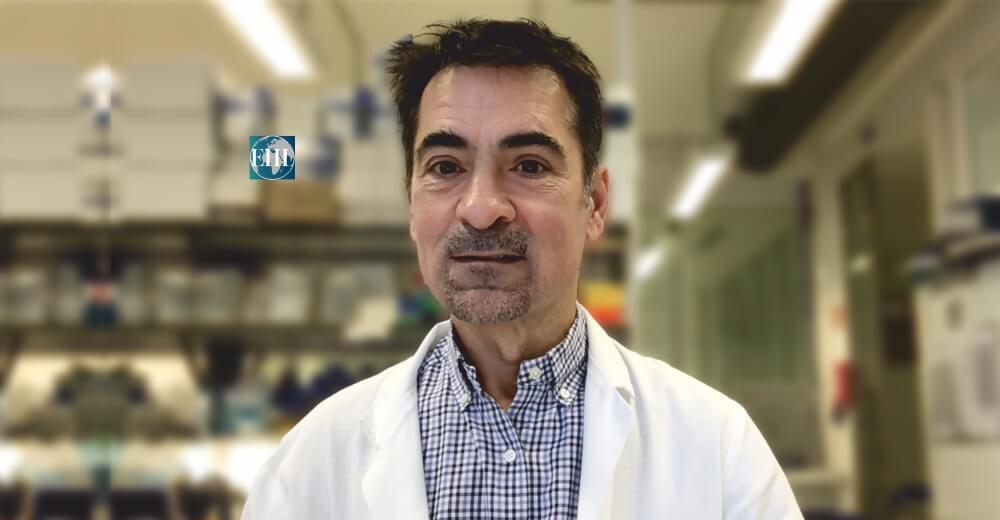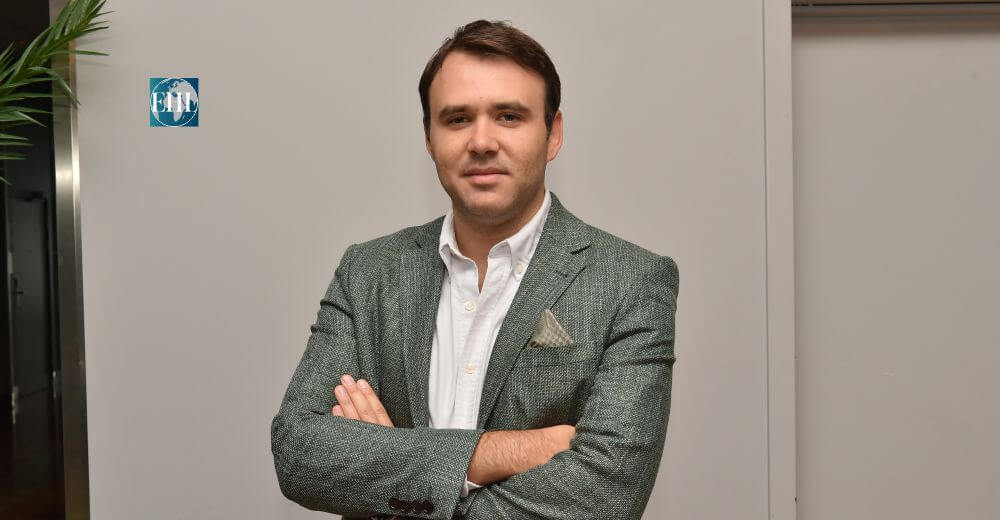The healthcare landscape in Europe is intricate, presenting leaders in the field with a multitude of challenges. Factors like an aging population, limited public spending, a shortage of healthcare professionals, financial disparities, and the constant need for high hygiene standards create a dynamic and demanding environment. Balancing budgets while aiming for universal health coverage further complicates the situation. It is in this challenging context that healthcare leaders rise as beacons of innovation and resilience.
One such leader is José Ramalho, a visionary in healthcare innovation. He serves as the CEO of SICGEN Antibodies, a European company specializing in producing and marketing polyclonal antibodies for Cell Biology research. Additionally, he holds the position of Principal Researcher at NOVA Medical School- NOVA University of Lisbon, holding a PhD in Biochemistry from Imperial College London, with expertise in antibody development.
Armed with an esteemed academic background and a deep commitment to addressing unmet needs in the healthcare sector, José embarked on a remarkable journey that resulted in the establishment of SICGEN Antibodies. This European biotechnology company is dedicated to developing and producing polyclonal antibodies for research in life sciences, consistently striving to create new antibodies for use in industry and research. In addition to innovative approaches, José strongly emphasizes the use of sustainable practices, which he incorporates into his work at SICGEN Antibodies.
José’s narrative extends beyond personal triumph; it stands as a testimony to the transformative impact of innovation and technology in healthcare. His transition from academia to the forefront of biotechnology offers valuable insights into the future of healthcare in Europe and beyond.
Join us as we delve into the inspiring story of José Ramalho and the cutting-edge solutions he has pioneered at SICGEN Antibodies.
From Academic Pursuits to Healthcare Innovation
José earned his Bachelor’s degree in Biochemistry and subsequently pursued a Master’s degree in Cell Biology from the University of Coimbra. He further advanced his education by obtaining a PhD in Biochemistry from Imperial College in London. After completing his Bachelor’s degree, he decided to embark on an academic career. His professional journey commenced in 1990 when he joined the University of Coimbra as a biomedical researcher. In 2009, he transitioned to NOVA University of Lisbon, where he has since excelled as a principal researcher in the field of molecular cell biology. José’s tenure as a researcher has been marked by both personal satisfaction and intellectual gratification.
The Genesis of SICGEN Antibodies
A dedicated researcher in the field of Life Science, José observed a scarcity of research tools such as antibodies and a lack of companies dedicated to their development and production in Europe during his PhD years in London from 1997 to 2001. Upon his return to Portugal, he took the initiative to establish SICGEN Antibodies, aiming to fill this market gap. He established the company in 2008 as a spin-off from the University of Coimbra in a small village in the district.
SICGEN Antibodies is a company that focuses on the development, manufacturing, and promotion of polyclonal antibodies, which have proven successful in various facets of life science research. Notably, antibodies targeting fluorescent proteins like GFP, mCherry, and tdTomato have been prominently featured in renowned research publications such as Nature, Cell, and Science. As of 2023, SICGEN offers a product range of over 300 items, primarily tailored for research applications in biochemical techniques like Western Blotting (WB), Immunofluorescence (IF), and Immunocytochemistry (IHC). While many are already utilized in ELISA, immunoprecipitation, and other biochemical methods, SICGEN is committed to ongoing efforts in developing new antibodies that contribute to advancements in research and the healthcare sector.
SICGEN also specializes in crafting custom polyclonal antibodies for esteemed national and international establishments, including universities, research institutes, pharmaceutical manufacturers, and biotechnology distributors worldwide. The company places a distinct emphasis on the North American, European, and Far East markets. It houses a Production Unit consisting of laboratory facilities and an animal house dedicated to producing hundreds of goat antibodies annually.
Harnessing Cutting-Edge Technology for Antibody Production
In order to manage costs, SICGEN consistently explores in-depth strategies to reduce production costs without compromising quality. This approach has resulted in adopting goat antibodies to streamline manufacturing operations and boost scalability. The company’s team maintains strict antibody validation procedures, meticulously documenting validation data to ensure transparency. By prioritizing specificity and reproducibility, SICGEN has gained researchers’ confidence and successfully sets itself apart from rival market players, many of whom grapple with stagnation due to a shortage of innovative practices.
Advancing Life Science Research
SICGEN’s achievements stem from its commitment to researching specialized areas where significant gaps in the availability of top-notch antibodies exist. Founded as a spin-off from an academic institution by scientists, the SICGEN team effortlessly recognized and concentrated on producing antibodies in high demand. Their knack for foreseeing the evolution of critical scientific domains provided them with a competitive edge, and the company consistently embraces cutting-edge technologies geared toward enhancing antibody production.
Antibodies play a pivotal role in cell biology, biochemistry, and immunology, with the industry witnessing substantial growth in recent years. To effectively address the burgeoning demand, SICGEN remains agile, persistently striving to elevate antibody quality, specificity, and reproducibility. Collaborating with researchers, industry experts, and regulatory authorities allows the team to ensure that ongoing advancements in this field are adept at meeting the scientific community’s requirements and improving lives.
Overcoming Challenges and Shaping the Future of Healthcare
Healthcare leaders in Europe and worldwide are facing a range of pressing challenges. SICGEN, under the leadership of José, plays a pivotal role in addressing these challenges through its innovative products and services. Furthermore, its dedication to establishing itself as the foremost provider of high-quality polyclonal antibodies and antibody-related solutions at the most competitive prices has the potential to enhance healthcare affordability and accessibility.
Outlined below are the challenges José faces, along with the effective strategies he uses to address them:
- Digital Transformation: This involves the transition to digital technologies, including digital records, online sales, artificial intelligence, and data security. SICGEN is adopting these technologies by leveraging digital platforms and tools to enhance the sales process, improve efficiency, and drive better results.
- Environmental Sustainability: Healthcare systems have a significant environmental footprint, and leaders are under increasing pressure to make healthcare more sustainable by reducing energy consumption, carbon emissions, and waste. SICGEN has invested in renewable energy to reduce carbon emissions from electricity generation and promotes the circular economy.
- Innovative Treatments and Therapies: The rapid advancement in medical research and therapies is challenging and only made possible with the development of new and innovative research tools, such as antibodies. Leaders must decide which tools to develop and provide to the research community, considering cost-effectiveness and patient benefits.
- Pandemic Preparedness: Europe needs to improve its readiness to handle public health emergencies. The COVID-19 pandemic made it clear that being well-prepared is crucial. SICGEN has shown that it’s possible to react swiftly. They developed and manufactured antibodies for researching and diagnosing SARS-CoV-2 in a short amount of time. This demonstrates their ability to respond effectively to urgent situations.
Innovative technologies and practices can significantly contribute to achieve universally excellent healthcare outcomes, such as Artificial Intelligence, robotic surgery, and genomic medicine, which enable a more personalized approach to healthcare by tailoring treatment plans to an individual’s genetic profile.
Sustainable Practices in Antibody Production
Sustainable practices in antibody production are becoming increasingly important in the biotechnology sector. Companies are exploring innovative approaches to antibody production that are environmentally sustainable, reduce the use of animals, and improve efficiency. These practices are becoming increasingly important in the biotechnology sector as companies strive to meet the growing demand for antibodies while minimizing their environmental impact.
José’s research endeavors have prominently featured a focus on sustainability. He has earned recognition for his research contributions related to plant responses to abiotic stress, a domain crucial for sustainability in agriculture.
Talking on the subject of sustainable principles in antibody production, José underscores, “Building such systems requires strategic planning, innovation, and a focus on long-term goals. Investing in research, healthcare technology, and digital solutions that improve efficiency, reduce waste, and enhance patient care is essential. Collaboration and partnerships play an important role.”
Insights and Guidance for Aspiring Healthcare Leaders
José imparts the following advice for aspiring healthcare leaders aiming to leave a positive mark on the industry.
“Healthcare leadership can be challenging. We need to be resilient to handle the stress and demands of the job. It’s crucial to develop a clear and inspiring vision for the organization and communicate this vision to our team to motivate and align them toward a common goal. We should also be prepared for future crises, such as pandemics. Effective leadership requires collaboration with diverse teams both within and outside the organization. Technology and data analytics can be powerful tools for enhancing efficiency and healthcare outcomes.”
By following these wise words, aspiring healthcare leaders can cultivate the skills and attributes necessary to bring about positive change in the industry. This includes addressing complex systemic issues like a global pandemic, racial inequality, climate change, and economic challenges.
Charting the Course for SICGEN’s Global Influence
SICGEN Antibodies is dedicated to leveraging the latest technologies to create novel antibodies for both industry and research applications. José, with his forward-thinking approach, expresses, “It is my commitment to lead SICGEN towards becoming a global leader in the production of polyclonal antibodies, offering the highest quality products at competitive prices for our customers.” Research and development in the antibody sector are instrumental in propelling scientific progress by furnishing the essential tools for studying biological processes and molecules.
Recognitions of Remarkable Work
José’s notable contributions to the field of antibodies have earned him various recognitions. This is exemplified through his company, SICGEN Antibodies, which consistently provides high-quality antibody solutions to a range of research institutions. The following awards highlight its standing in the industry:
- In 2021, SICGEN Antibodies received the prestigious Best International Antibodies Production Company award from the European Enterprise Awards. Following this achievement, the company continued to receive accolades in subsequent years.
- In 2022, SICGEN Antibodies was acknowledged in the European Enterprise Awards.
- Most recently, SICGEN Antibodies has been recognized in the Global Business Awards 2023 for its success in focusing on research on niche areas where clear gaps exist in the supply of high-quality antibodies.









